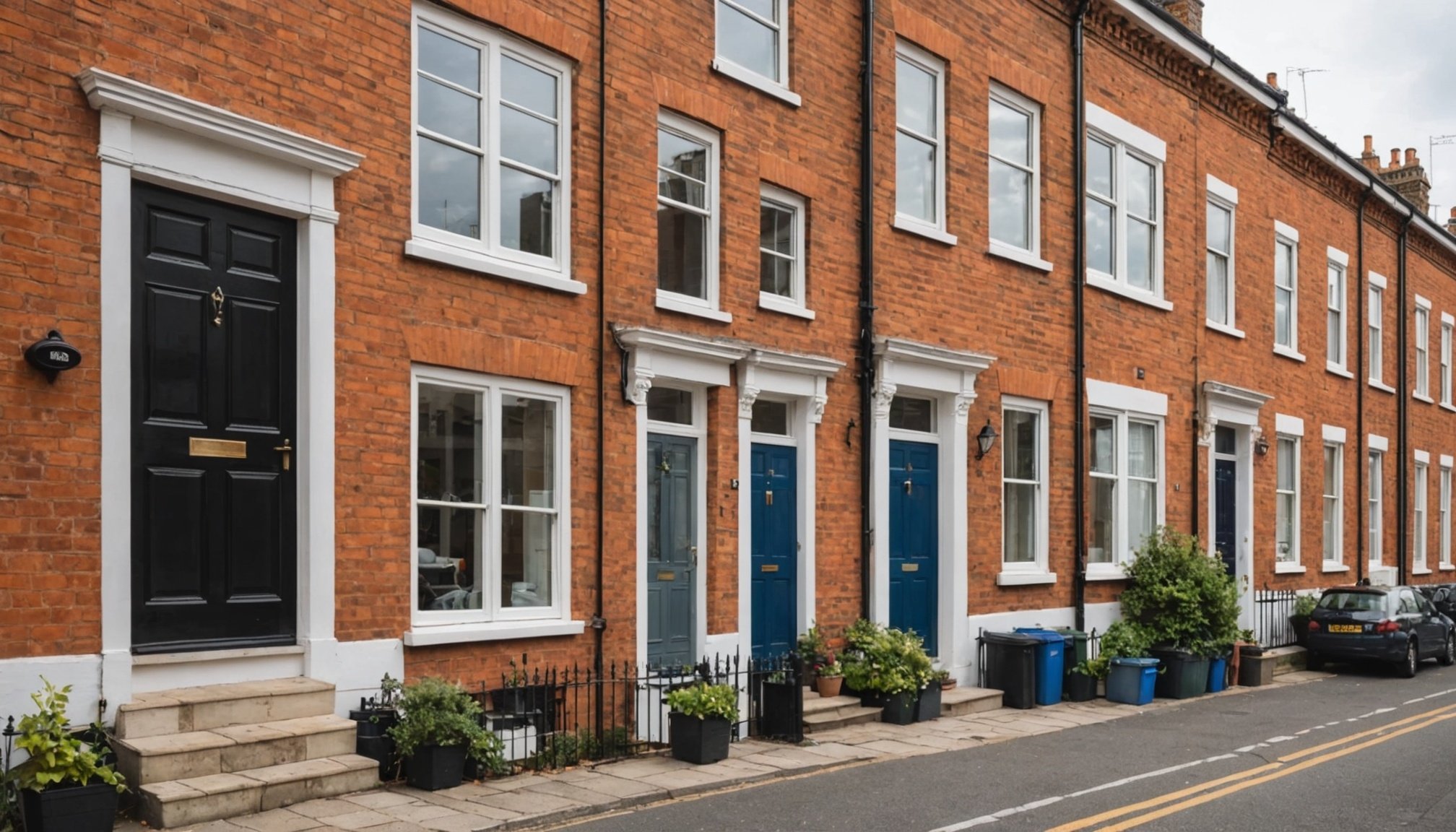Understanding Home Value Enhancement
Enhancing your home’s value is a strategic way to maximise returns on your property, especially in a dynamic market like the UK housing market. A key factor to consider is home renovations. These not only cater to immediate aesthetic and functional upgrades but also significantly elevate the property’s long-term market value. Significantly, knowing the latest market trends is vital for making informed renovation decisions.
In the UK housing market, trends show an increasing demand for properties with modern amenities and enhanced energy efficiency standards. Therefore, investing in energy-efficient home renovations can be a lucrative move. Prospective buyers often prioritise eco-friendly features, which contribute to higher property appraisals and faster sales.
In the same genre : Empowering growth: a guide for uk businesses to utilize green financing for eco-friendly property enhancements
Moreover, the benefits of home improvements extend beyond market readiness. They offer sustained comfort and reduced utility costs, enhancing your living experience. Whether you plan to sell or retain your home, these upgrades promise a practical increase in value.
In conclusion, while the initial investment in home renovations may seem substantial, the potential financial and personal rewards justify the expenditure. Whether through small-scale updates or more extensive remodels, focusing on improvements that align with market demands is crucial for maximizing your home’s value over time.
Have you seen this : Maximizing real estate potential: a uk investor”s handbook on assessing the impact of local amenities
Understanding Home Value Enhancement
In the context of the UK housing market, home renovations are a crucial element in enhancing a home’s value. With the housing market showing a persistent demand, strategic upgrades can significantly maximize home value. Projects such as kitchen or bathroom modernisations, extensions, and energy efficiency upgrades can have substantial impacts. By focusing on renovations that improve functionality and energy savings, homeowners can not only boost their property’s worth but also align with current market trends.
The UK housing market has seen fluctuations and periods of growth, making the timing and choice of renovations pivotal. In recent years, there’s been an increasing demand for properties with sustainable features, influenced by both buyer preferences and government incentives. This trend is expected to continue, leading to long-term benefits for those investing wisely in home improvements.
Investing in renovations is not merely about immediate gains. Many believe it reflects a future-forward approach, considering aspects such as sustainability and technological advancements. Homeowners who strategically decide on renovations that have a high return on investment are likely to see enhanced property value over time. This approach encourages a more thoughtful consideration of modifications, ensuring that they are both aesthetically pleasing and beneficial for the long haul.
Government Grants for Home Renovations
In the UK, government grants provide valuable support for homeowners aiming to enhance their properties. These grants alleviate the financial burden of renovations, incentivising home improvement projects. Particularly, UK home improvement grants target energy efficiency and sustainable practices, encouraging eco-friendly upgrades and compliant infrastructure modifications.
Numerous types of grants are available to homeowners. Some programmes focus explicitly on increasing property energy efficiency, like the Green Homes Grant, which subsidises insulation and heating upgrades. Others, such as the Disabled Facilities Grant, offer funding for essential modifications catering to accessibility needs.
Access to these funds not only reduces upfront renovation costs but also promotes investment. By relying on government funding, homeowners can undertake necessary enhancements without excessive financial strain. This mechanism is pivotal for supporting comprehensive upgrades that increase home value.
Government grants in the UK are integral for fostering improvements in the housing landscape. They enhance the appeal of properties by promoting modern, efficient developments. Homeowners can leverage these grants to not only boost their property’s marketability but also contribute positively to environmentally responsible living. Understanding and accessing these grants can be a strategic move for any homeowner looking to maximise their property’s potential.
Energy Efficiency Upgrades
Implementing energy efficiency upgrades is pivotal for boosting home value. With an increasing preference for sustainable renovations, homeowners are drawn to eco-friendly home improvements. Prospective buyers place a higher value on homes equipped with energy-efficient features, recognising their long-term benefits.
Government incentives have made energy-efficient upgrades more accessible. Notably, several schemes provide partial funding or tax benefits for incorporating energy-saving solutions like insulation or solar panels. These financial aids mitigate renovation costs, making such investments attractive to homeowners keen on upgrading sustainably.
Incorporating energy-efficient practices is not only beneficial for property value but also significantly reduces utility expenses. Implementing effective insulation, double glazing, and energy-efficient lighting can lead to noticeable savings on energy bills.
When planning sustainable renovations, it is crucial to adhere to best practices. Ensuring quality installations through professionals results in optimal performance and durability. Additionally, selecting the right materials and technologies further enhances efficiency. Investing in comprehensive audits to evaluate potential improvements can guide effective decision-making.
By prioritising energy efficiency, homeowners contribute to a more sustainable future while enhancing their property’s appeal and market value. Such upgrades resonate well in the evolving UK housing market, appealing to environmentally-conscious buyers.
Eligibility Criteria for Grants
To access government grants effectively, understanding the eligibility criteria is crucial. Grants often have specific requirements, ensuring that funds are allocated to those who genuinely need support.
General Eligibility Requirements
Typically, applicants must own the home they intend to renovate, and the property should be located within the UK. Additional general criteria may include compliance with local property taxes.
Specific Criteria for Energy Efficiency Grants
For those focused on energy efficiency improvements, specific grants may stipulate that proposed renovations meet certain sustainability standards. For instance, homeowners might need to demonstrate that planned upgrades contribute to reducing the overall carbon footprint of the property.
Age and Income Considerations
Some grants consider demographic factors. For example, certain programmes prioritize elderly or low-income homeowners, offering them enhanced funding to facilitate essential renovations. Meeting these criteria can ease the financial burden of home improvements for eligible homeowners.
Understanding these grant eligibility parameters ensures that applicants align their renovation plans with existing requirements. This strategic approach not only maximises their chances of receiving funding but also encourages thoughtful investment in property enhancements. Properly preparing for the application reinforces the potential for successful home improvements.
Eligibility Criteria for Grants
When considering government grants for home renovations, it’s essential to understand the grant eligibility and homeowner requirements necessary to access funding.
General Eligibility Requirements
Typically, these grants are open to homeowners who occupy their property as a primary residence. Applications usually require proof of ownership and residence, ensuring the funds are directed to legitimate home improvement needs. The grant could also stipulate that the property wasn’t purchased with the direct intention of immediate resale.
Specific Criteria for Energy Efficiency Grants
For grants focused on energy efficiency, such as insulation or solar panel installation, specific criteria may include demonstrating a significant need for such improvements. Properties characterised by high energy consumption might be prioritized. Moreover, homeowners may need to present a comprehensive plan outlining the proposed upgrades and their expected benefits in terms of energy conservation.
Age and Income Considerations
Certain grants target demographics like older homeowners or low-income families. For instance, income thresholds often determine eligibility, ensuring that financial assistance reaches those most in need of support for critical home enhancements. Similarly, senior citizens might access bespoke funding options tailored to improve the safety and accessibility of their living environments.
Understanding these criteria helps homeowners streamline the grant application process and enhances the likelihood of securing necessary funding for renovations.
Successful Renovation Case Studies
Studying home renovation success stories can offer insightful lessons for homeowners aiming to enhance their property value. In various examples across the UK, homeowners have strategically leveraged both personal resources and government grants to maximise ROI.
One noteworthy example involved a family in Leeds who invested in energy-efficient windows and a modern open-plan kitchen. With funding obtained through the Green Homes Grant, they managed a comprehensive renovation that heightened their property’s market value. These modifications not only reduced energy bills but also attracted eco-conscious buyers when they eventually listed the property.
Another case in Glasgow showcased the importance of strategic home renovations. A couple combined sustainable upgrades with aesthetic improvements in the form of contemporary bathroom fittings and solar panel installations. The investments were partially funded by local government incentives focused on sustainable home improvements.
From these case studies, key takeaways include the importance of aligning renovations with current market trends and local housing demand. Successful investment examples highlight the benefits of thorough research and strategic planning. Homeowners should evaluate the potential return of each renovation project, choosing those that stand to offer significant value growth. By following these models, property owners can confidently enhance their home’s value while contributing to environmental sustainability.
Application Processes for Government Grants
When pursuing funding for renovations, understanding the grant application process is essential for success. This meticulous journey encourages precise alignment with all requirements.
Step-by-Step Guide to Applying for Home Renovation Grants
-
Research and Prepare: Identify grants suitable for your home improvement needs. Collect necessary documentation like proof of ownership and detailed renovation plans.
-
Application Submission: Fill out forms accurately, adhering to specified criteria. Incorrect or incomplete submissions may lead to delays or rejection.
-
Monitoring Progress: After submission, track the application’s status. Engage proactively with the granting body to address any additional information requests.
Common Pitfalls to Avoid During the Application Process
- Ignoring Eligibility Criteria: Ensure compliance with all listed requirements before applying.
- Lack of Preparation: Thoroughly prepare, avoiding last-minute rushes which often result in errors.
Timeframes and Expectations
Typically, the grant application review process can take several weeks to months. During this period, it is crucial to remain patient and responsive to any requests for further details. Upon approval, carefully follow fund usage guidelines to ensure project alignment with the grant’s objectives.
Application Processes for Government Grants
Navigating the grant application process can be simplified with a clear understanding of the steps involved. For homeowners in the UK seeking financial support through government grants, preparing thoroughly is crucial to successful outcomes.
Begin by collecting necessary documents such as proof of ownership and residence. These support your eligibility and streamline the application process. Next, ensure that your renovation project complies with the specific criteria set by the grant you are applying for.
Once prepared, diligently fill out the application, providing clear and concise information. Missteps often occur here; avoid common pitfalls like incomplete forms or overlooked documents, which can delay or derail your funding progress.
Adhering to the detailed submission process also involves meeting deadlines. Stay informed about the timeframes for each step, from application submission to approval. Typically, it could take several months to receive a decision, so planning accordingly is essential.
After submitting your application, manage expectations by understanding that receiving funds may involve several weeks of processing. During this period, maintaining open communication with the granting body can provide updates and additional support if needed. This proactive approach ensures a smoother path to securing the necessary funding for your renovation projects.
Local Housing Market Trends
Understanding regional housing trends is crucial for making informed decisions about home renovations that maximise home value. In the UK housing market, local fluctuations significantly influence renovation choices.
Regional Housing Trends
In areas experiencing growth and influxes of new residents, property values can rise more rapidly. Thus, investing in upgrades that reflect modern amenities or sustainable features can further boost this appreciation.
Impact of Neighbourhood Trends
Neighbourhood factors, like school quality or proximity to transport hubs, play a vital role in determining property value. Renovations that enhance home’s alignment with these factors—such as adding energy-efficient windows in historically cold areas—can be strategic.
Timing Renovations
Timing is everything in a dynamic market. Conducting a thorough market analysis helps homeowners determine when to showcase their property’s new amenities. For instance, in a potential downturn, focusing on cost-effective renovations like fresh painting or energy-efficient installations can maintain a property’s appeal without excessive expenditure.
By keeping an eye on local housing market trends, property owners can better align their renovation strategies with opportunistic moments, ensuring their investments yield high returns and sustained property appreciation.
Practical Renovation Tips for Homeowners
Enhancing your property’s value through effective renovation strategies can be both rewarding and financially beneficial. Recognising cost-effective renovation ideas is crucial to maximising your investment. For instance, refreshing interior paint or updating fixtures are manageable projects that can significantly improve a home’s appeal without breaking the bank.
Cost-effective Renovation Ideas
Identifying budget-friendly enhancements is essential for homeowners seeking to boost property value efficiently. Simple adjustments such as repainting with neutral tones, updating outdated fixtures, or enhancing landscaping can refresh a property’s allure. These smaller-scale improvements can yield surprising dividends in terms of appeal and resale value.
Focus on High-ROI Improvements
It’s wise to concentrate on high-ROI improvements that capture buyer interest. Kitchen and bathroom remodels remain top contenders for significant returns. Energy-efficient upgrades, such as installing smart thermostats or better insulation, also attract eco-conscious buyers. These investments not only improve functionality but align with current market demands.
Leveraging Professional Help
While DIY projects may seem appealing, knowing when to enlist professional help ensures quality and efficiency. For complex tasks like installing new plumbing or electrical systems, professional intervention is advisable. Engaging experts prevents costly mistakes and extends the lifespan of improvements, ultimately preserving property value. This strategic approach ensures that renovations are both appealing and up to market standards.
Practical Renovation Tips for Homeowners
Embarking on home renovations can significantly maximize home value. By focusing on strategies that enhance both aesthetic and functional aspects, homeowners can make sound investments.
Cost-effective Renovation Ideas
An easy start is improving curb appeal with simple landscaping or a fresh coat of paint, which quickly refreshes appearances without heavy spending. Updating light fixtures and adding energy-saving bulbs can modernise interiors while reducing costs.
Focus on High-ROI Improvements
Prioritising renovations that align with UK housing market demands ensures better returns. Kitchen upgrades, such as modern cabinetry or appliances, and bathroom re-modelling are popular value-adding renovations. These areas usually see a substantial increase in property value post-renovation.
Leveraging Professional Help
While some tasks may be tackled DIY, engaging professionals guarantees quality and adherence to regulations. Experts can also provide insights into home improvement tips tailored to specific properties. When undertaking structural changes or installations, hiring a professional ensures safety and compliance, safeguarding your investment.
In combination, these renovation strategies address improved aesthetics, functionality, and energy efficiency, aligning with buyer expectations and market trends. By discerning the most beneficial modifications, homeowners can reliably enhance both daily living and property marketability.











